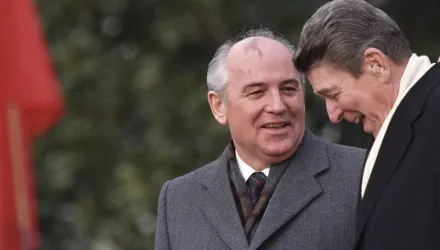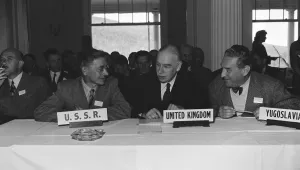International Security is America's leading peer-reviewed journal of security affairs.
Overview
In their efforts to make the goal of halting nuclear proliferation—particularly by so-called rogue regimes—a centerpiece of their new national security strategy, George W. Bush and his administration have rejected crucial lessons from the past. So argues Francis Gavin of the University of Texas. Four decades ago, the United States confronted “a far more terrifying” threat” than any posed by Saddam Hussein’s Iraq or current “rogue” regime when China detonated its first atomic device in October 1964. Gavin explores the intense debate that took place within President Lyndon Johnson’s administration over how to respond to the immediate threat posed by a nuclear-armed China as well as nuclear proliferation more generally. Gavin focuses on the work of the Gilpatric committee, a little-known but highly respected group of “wise men” chosen by Johnson to examine these issues. The committee’s controversial recommendations would help to transform U.S. nonproliferation policy and pave the way for the Nuclear Nonproliferation Treaty, negotiated in cooperation with the Soviet Union.
The full text of this publication is available in the link below.



